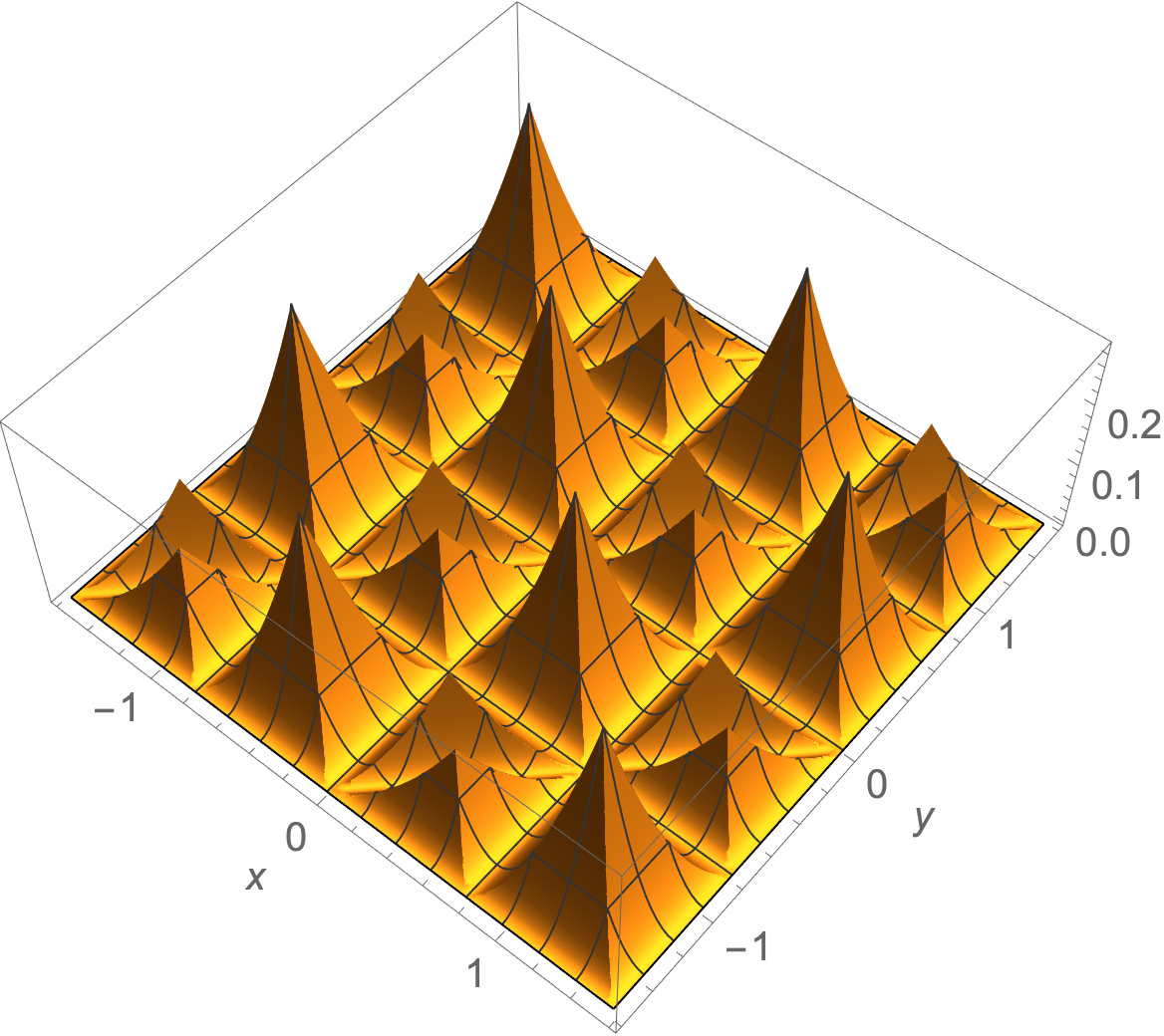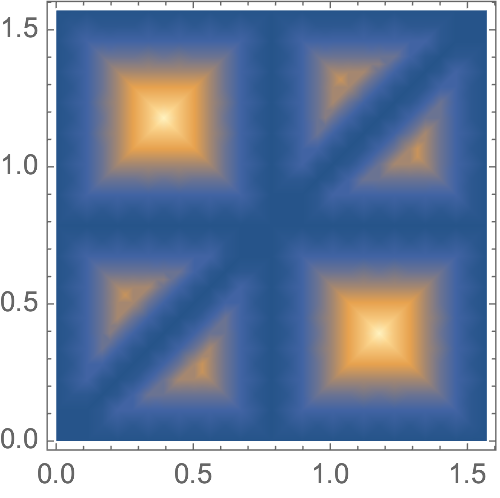如何证明$\min\left\{\begin{array}{l}
1 \\
1-\cos (2 x) \\
1+\cos (2 x) \\
1-\cos (2 x-2 y) \\
1+\cos (2 x-2 y) \\
1-\cos (2 y) \\
1+\cos (2 y) \\
1-\sin (2 x) \\
1+\sin (2 x) \\
1-\sin (2 y) \\
1+\sin (2 y) \\
\end{array}\right\}$的最大值为$1 - \frac1{\sqrt2}$ ?
- f[x_, y_] =
- Min[1, 1 - Cos[2 x], 1 + Cos[2 x], 1 - Cos[2 x - 2 y], 1 + Cos[2 x - 2 y],
- 1 - Cos[2 y], 1 + Cos[2 y], 1 - Sin[2 x], 1 + Sin[2 x], 1 - Sin[2 y],
- 1 + Sin[2 y]];
- Maximize[f[x,y],{x,y}]
Maximize无法找到最大值,因为函数不平滑。
使用NMaximize结果为{0.292893, {x -> -1.1781, y -> -0.392699}}
函数对称性- f[x + π/2, y] == f[x, y] // FullSimplify
- (* True *)
- f[x, y + π/2] == f[x, y] // FullSimplify
- (* True *)
- f[π/2 - x, π/2 - y] == f[x, y] // FullSimplify
- (* True *)
- f[y, x] == f[x, y] // FullSimplify
- (* True *)
- Plot3D[f[x, y],
- {x, -π/2, π/2}, {y, -π/2, π/2},
- PlotRange -> All,
- Exclusions -> None,
- PlotLegends -> Automatic,
- PlotPoints -> 100,
- MaxRecursion -> 5,
- AxesLabel -> Automatic]
|

|
| - DensityPlot[f[x, y], {x, 0, π/2}, {y, 0, π/2}, PlotRange -> All, Exclusions -> None]
|

|
|